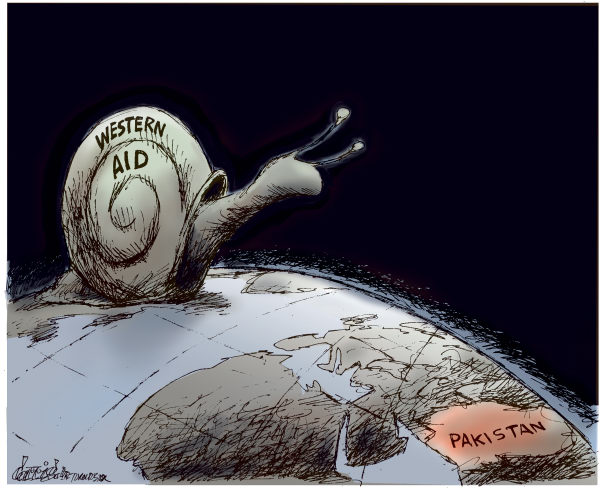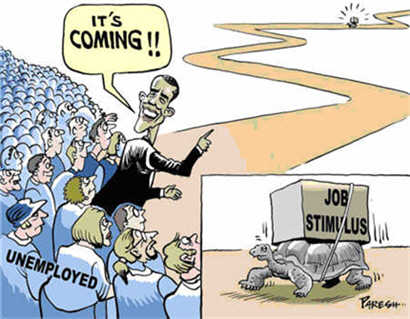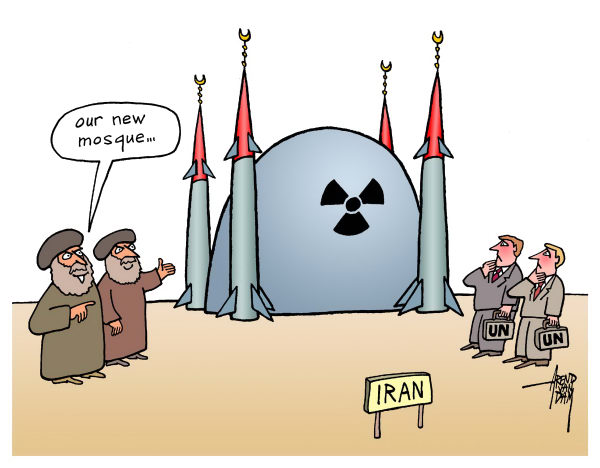CRH Profit Warning Spooks Building Materials Stocks
Stock-Markets / Stock Markets 2010 Aug 24, 2010 - 09:14 AM GMTBy: PaddyPowerTrader
 The early doors M&A optimism faded Monday into the US close with the S&P 500 (-0.40 percent) closing at the lows for the session and at 5-week lows as fresh concerns the economy may return to recession overshadowed speculation takeovers will accelerate. Caterpillar and Cisco Systems both lost at least 2.5 percent to lead the Dow Jones Industrial Average lower. Hewlett- Packard shed 2 percent after offering to buy 3Par Inc., sending the data-centre software company’s shares up 45 percent while Potash Corp. of Saskatchewan climbed for a sixth day on speculation the fertilizer maker will get a higher takeover bid.
The early doors M&A optimism faded Monday into the US close with the S&P 500 (-0.40 percent) closing at the lows for the session and at 5-week lows as fresh concerns the economy may return to recession overshadowed speculation takeovers will accelerate. Caterpillar and Cisco Systems both lost at least 2.5 percent to lead the Dow Jones Industrial Average lower. Hewlett- Packard shed 2 percent after offering to buy 3Par Inc., sending the data-centre software company’s shares up 45 percent while Potash Corp. of Saskatchewan climbed for a sixth day on speculation the fertilizer maker will get a higher takeover bid.

Today in Europe Dublin’s ISEQ is suffering badly (down 4 percent) as CRH announced a 77 percent drop in H1 profits and more worryingly said they we’re going to miss recently advised full year guidance by 10 percent plus.
Separately France’s Lafarge lost 3.5 percent after BofA Merrill Lynch Global Research cut its recommendation on shares of the world’s largest cement maker. The rout in the building materials sector also hit Germany’s HeidelbergCement , the world’s largest maker of aggregates used to produce concrete and asphalt, which dropped 4.8 percent and the UK’s Wolseley the world’s largest supplier of heating and plumbing products, which sank 7.9 percent.
In contrast Persimmon the UK’s 3rd largest builder gained 1.9 percent after they said first-half profit surged after raising prices in an improving housing market. Net income rose to £80.1 m from £9.8 m pounds a year earlier, the company said. Revenue climbed 27 percent to £776.6 m pounds after 4,657 houses were sold.
Also to the upside today we have Punch Taverns , the largest U.K. pub owner, which has surged 8 percent today after saying full-year profit will exceed its forecasts, helped by favourable summer weather and a refurbishment program.
But Vedanta Resources, the mining company that agreed to buy control of oil explorer Cairn India, has lost 5.7 percent after the Indian government rejected Vedanta’s proposal to mine bauxite in the eastern state of Orissa. The government also wants the company to explain why it should not cancel the permit for a 1-million-ton refinery, hampering a planned $8 b expansion of the site.

Today’s Market Moving Stories
•At least seven of the 17 Fed officials gathered around the massive oval boardroom table, made of Honduran mahogany and granite, spoke against the proposal or expressed reservations. At the end of an extended debate, Mr. Bernanke settled the issue by pushing successfully to proceed with the move. The debate over the decision to keep the Fed’s $2.05 t stock of mortgage debt and US Treasury holdings from shrinking, described in interviews with several participants, set the stage for a more consequential discussion inside the Fed that remains very much alive: what to do next, if anything, about America’s stubbornly weak recovery and troublingly low inflation.
Central bankers are turning dovish. The Fed has decided to reinvest its maturing mortgage-backed securities. Even the Bundesbank’s uber hawk Weber says Eurozone banks should be allowed to keep borrowing as much as they need from the ECB this year, and now the BoE’s newest MPC member Weale is warning the UK faces a significant risk of sliding back into recession. Policymaker pessimism is inducing risk aversion again, benefiting the safe-haven dollar, yen and Swiss franc at the expense of the euro, pound and commodity currencies. Fed Chairman Bernanke’s Jackson Hole speech this Friday will therefore be critical. Investors hoping for a turnaround would like to see the Fed resume quantitative easing, but Bernanke may not be able to signal such a major change until the FOMC next meets on September. 21. Hence risk aversion is likely to keep safe-haven currencies supported for now.
•According to a European Commission report, which drew on information published in the July “stress tests”, the biggest holders of Greek government debt (at end-March) were: Hypo Real Estate (EUR7.9bn), BNP Paribas (EUR5bn) and Societe Generale (EUR4.2bn). The fourth biggest holder was Commerzbank (EUR2.9bn), followed by ING and RBS (both EUR2.4bn).
•Slower economic growth in China, India or other Asian economies would have a “serious negative impact” on Europe’s growth, the European Union’s economic chief said. Olli Rehn, the EU commissioner for economic and monetary affairs, said yesterday in a Bloomberg Television interview that a slowdown in the U.S. recovery and turmoil in the sovereign debt markets also could cause concern in Europe. Strengthening global growth helped Europe’s economy show the fastest expansion in four years in the second quarter after the Greek budget crisis earlier damped confidence in the euro currency and forced governments to step up deficit-cutting measures. Euro-area growth is likely to decelerate in the second half of the year as signs of a slowdown in the US and China dim export prospects.
•The UK faces a “significant” risk of a renewed slide into recession, a leading policymaker at the Bank of England warned, UK newspaper The Times reported Tuesday. It would be “foolish” to rule out the possibility of a double-dip downturn, even if it was not the Bank’s central prediction, said Dr. Martin Weale, the newest member of the Monetary Policy Committee, according to The Times. He also feared that the Bank’s central outlook–which is for growth of about 2.8 percent in 2011 and 3.2 percent in 2012–could be too optimistic, The Times said. Among the dangers ahead are a renewed surge in unemployment, further declines in house prices and a new banking crisis, said Weale, one of the UK’s most respected economists, The Times said Asked if there was a danger of a second economic downturn, Weale said that it was a “real risk”. He added: “People would be foolish to say that it can’t happen or that it is definitely not going to happen.”

•Spain has come into focus over the last few days, with a number of publications running extended pieces on the fiscal and economic situation there. Spain is a strange case in many ways, with unemployment close to 20 percent and youth unemployment running over 40 percent, yet it has come under less pressure from financial markets than most of its other Southern European cousins. A Fistful of Euros has the following (exceptionally thorough) article on the topic http://bit.ly/cqJnd1 and the FT also ran a full page analysis today. On the topic of Spain we would note that the full austerity budget debate takes place in late September (exact date yet to be set) and there is a significant risk that Premier Jose Luis Rodriguez Zapatero fails to win the vote on the fiscal austerity measures, given that he only managed to push through May’s emergency measures by a single vote. I have attached our “risk events” calendar for the rest of 2010 -we would also flag the 30th September as a potentially tumultuous day, with some €225 b of long term ECB financing running off.
Company / Equity News
•Irish building materials giant CRH has issued full year results for the 6-month period ending June 30th. EBITDA declined by 20 percent to €520m in line with guidance provided on July 7th trading statement. Revenue declined by 8 percent to €7.658bn. Profit before tax came in at €25m, 77 percent lower year on year. In relation to its outlook for the second half of the year, CRH issued a further profit warning indicating that EBITDA for the full year 2010 is likely to be circa 10 percent below the same period last year. The company had previously indicated that it expected EBITDA for the second half of the year to be ahead of last year. While the company was slightly more upbeat on Europe, CRH noted that concerns surrounding the recovery in the US had increased. As a result, its materials business has experienced weaker than expected volumes and more competitive pricing due to lower than anticipated levels of commercial construction and pull-backs in state and municipally funded projects.
The scale of the of the downgrade to the outlook is very significant particularly after recent comments from US peers Vulcan & Martin Marieta and applying a multiple of 15 times only now yields a price of 1200c, no wonder the stock is under the hammer today.
•Aer Lingus has reported an operating loss of just €19m for the first half of 2010 this morning This result was better than anticipated and illustrates that new management is making progress in restructuring the business.
The airline actually turned an operating profit of €18.8m in the Q2 and now expects to at least breakeven this year. The figures demonstrated an improvement average yields per passenger and a better performance
in long haul operations. The company provided no guidance for 2011 stating that it was too early to do so.
•WPP has reported 1H10 results which demonstrate the ongoing rebound in advertiser confidence.Revenues rose 2.5 percent on a like for like basis to £4.4b with promotional advertising spend particularly from the United States region behind the result. There was also a marked improvement in revenue trends in the UK in 2Q10. EBITDA rose 19.3 percent in constant currencies to £560.8m. Operating margins were also stronger, rising £230m to 10.3 percent reflecting an improvement in the ratio of staff costs to revenue which stood at 60.4 percent. Net debt levels were £3b at the reporting date, up from £2.6b at FY09. WPP is coming towards the end of its self imposed moratorium on large-scale acquisitions. Following the acquisition of TNS in 2008, WPP indicated that for the next two years future acquisitions would be limited in scale to £100m per annum while also capping the share buyback to 1 percent and dividend growth to 15 percent per annum. The message from the current result is that management continues to look for opportunities to deploy cash flow, implying larger acquisitions could be on the cards. Despite this confidence, the outlook remains slightly cautious reflecting Western European economic conditions.
•The Obama administration plans to review 26 government information technology projects worth $30b as part of an effort to trim back or cancel contracts that aren’t meeting goals. Among contracts singled out for scrutiny today were a $1.5 b project for Lockheed Martin Corp. to update air-traffic control equipment; $281m to Computer Sciences Corp. to help process patent applications; and $350m for AT&T Inc. to improve the Treasury Department’s telecommunications. Before leaving office last month, former White House budget director Peter Orszag ordered a review of the $80b the government spends annually on technology to determine whether lax oversight has led to cost overruns, delays and the implementation of obsolete systems.
•Dell is readying a sweetened offer for data-storage provider 3Par Inc. after its earlier bid was bested by a $1.6 b proposal by Hewlett-Packard , according to a person familiar with the matter. The offer may be sent in the coming days, said the person, who declined to be identified because the plans aren’t public. Last week, Dell had agreed to pay about $1.15 b. It couldn’t be determined how much Dell planned to boost its price. HP said yesterday it’s willing to pay more than twice what 3Par’s shares were worth before Dell’s bid was announced. In fighting a bidding war with HP, Dell is challenging the world’s largest computer maker and a company with almost $15 b in cash. 3Par, which makes technology that helps companies store information, would give its new owner a leg up in a challenge to Cisco Systems and IBM in the market for data-centre products and services.
•Indian state-run energy companies are considering bidding for a stake in Cairn India Ltd., countering Vedanta Resources Plc’s $9.6 b offer for the explorer, according to two people familiar with the matter. India’s oil ministry has instructed Oil & Natural Gas Corp to study the possibility of making a counter offer, one of the people said. GAIL India Ltd may join ONGC, another person said. Vedanta, the mining company controlled by billionaire Anil Agarwal, agreed this month to buy as much as 60 percent of Cairn Energy Plc’s Indian unit to gain access to the country’s biggest onshore oil field. ONGC has led India’s search for oil assets overseas, competing with China as the world’s two most-populous nations seek to secure energy supplies.
•Korea National Oil Corp won’t raise its £1.87 b hostile bid for Dana Petroleum Plc, and the price fully reflects the value of the UK explorer, Chief Executive Officer Kang Young Won said. The Financial Times reported Aug. 22 that Dana will make a final attempt this week to persuade Korea National to raise its offer in exchange for the approval of Dana’s board. Korea National is open to discussions with Dana while it remains firm on price, Kang said at a conference in Seoul today.
•Potash is in discussions with several Chinese firms and other international companies that may put in a higher bid for the company than BHP Billiton , the Globe and Mail reported. Rio Tinto is also said to be considering a bid alongside a Chinese company, while Vale SA appears to have left the discussions, the newspaper said. Other parties involved in the talks include Minnesota-based Mosaic Co. and Calgary-based Agrium Inc., the Globe reported, citing unidentified people. Officials at Rio Tinto, Mosaic, Agrium declined to comment, the newspaper said.
•Mathew Lynn commenting on Bloomberg casts a jaundiced eye over the flurry of M&A in mining and explorations stocks saying that “the City of London, where many of the resources companies are listed, is enjoying a frenzy of wheelerdealing. Speculators and hedge funds can make a fortune taking positions in the shares. And yet, shareholder value is more likely to be destroyed in this flurry of bids. Most of the efficiency savings promised by the bidders will turn out to be an illusion. The new mining conglomerates will provoke a backlash from governments and regulators that will hit profits and dividends. And all the deal-making will distract executives from their main task: finding more stuff in the ground and digging it up.”
•UK sales of mobile-phone handsets were 7.5 m in the second quarter, 5.15 percent up on the year-earlier period, the Financial Times reported, citing point- of-sale figures collected by GfK. It was the first three-month period of consecutive growth since the third quarter of 2008; June sales were especially strong, 6.8 percent up on June 2009, the newspaper said.
•Toshiba is developing televisions that can show 3-D images without the viewer wearing special glasses, Kaori Hiraki, a Tokyo-based spokesman said by phone today. No decision has been made on when to start sales of such sets, she said. Toshiba will start selling 3-D TVs that don’t require the use of special glasses by the end of this year, the Yomiuri newspaper reported earlier today.
•Vestas Wind Systems A/S has been picked as preferred supplier of turbines for the Co Clare Wind Farm in Ireland, newswire Direkt reported, citing Padraig Howard, chairman of developer West Clare Renewable Energy Ltd. Vestas would supply 28 of its V112-3.0 megawatt model to the project if the agreement is confirmed, the Copenhagen-based newswire said. The developer has also had talks with turbine- makers Siemens AG and Enercon GmbH, Howard said, according to Direkt.
•Pfizer, the world’s biggest drug maker’s cancer treatment Sutent has failed in a large-scale study to improve overall survival in patients with a form of lung cancer. The drug, when combined with Roche AG’s Tarceva, improved the length of time patients lived without their tumour progressing, though that didn’t translate into an overall benefit in survival when compared with Tarceva alone, the New York-based company said today in a statement.
By The Mole
PaddyPowerTrader.com
The Mole is a man in the know. I don’t trade for a living, but instead work for a well-known Irish institution, heading a desk that regularly trades over €100 million a day. I aim to provide top quality, up-to-date and relevant market news and data, so that traders can make more informed decisions”.© 2010 Copyright PaddyPowerTrader - All Rights Reserved
Disclaimer: The above is a matter of opinion provided for general information purposes only and is not intended as investment advice. Information and analysis above are derived from sources and utilising methods believed to be reliable, but we cannot accept responsibility for any losses you may incur as a result of this analysis. Individuals should consult with their personal financial advisors.
PaddyPowerTrader Archive |
© 2005-2022 http://www.MarketOracle.co.uk - The Market Oracle is a FREE Daily Financial Markets Analysis & Forecasting online publication.



